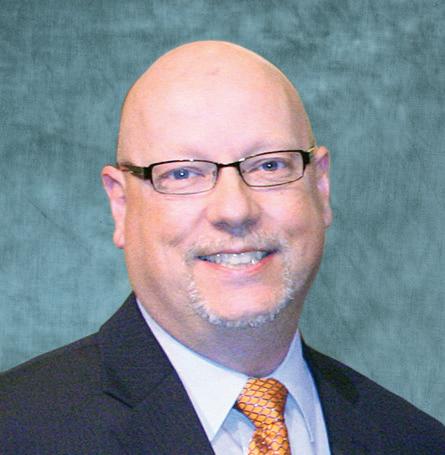Bring down the walls
‘Tiny house’–craze or crazy
Christian financial advice from Dave Ramsey






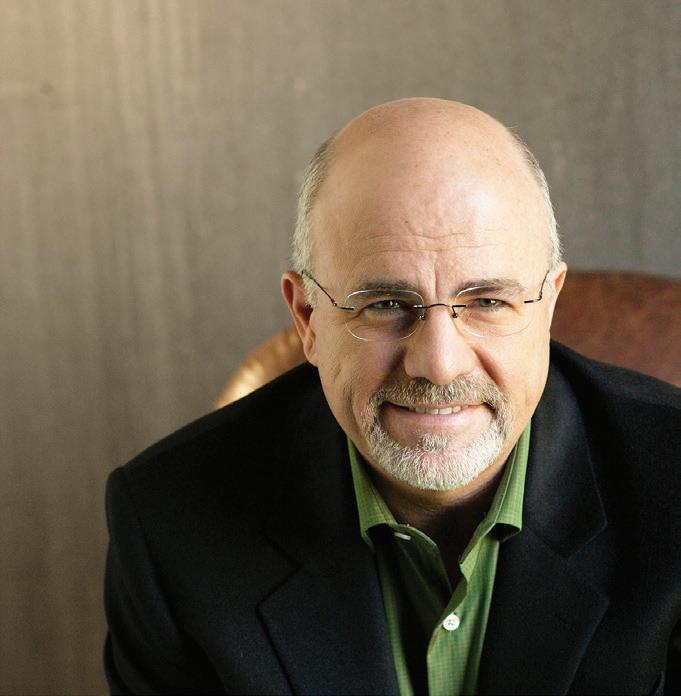
P. 11
A time to pray
Chicago to host day of intercession October 7


Broadview | Southern Baptist prayer warriors from around the country will meet in Illinois in October and are inviting local church leaders and members to join them for a day of prayer organized into five 60-minute sessions.


Sponsored by PrayerLink, a network of prayer coordinators from SBC entities, state conventions, and ethnic fellowship groups, the “Great Commission Prayer Experience” is Friday, October 7, at Broadview Missionary Baptist Church, located in the west suburbs of Chicago.

The event starts at 9 a.m. and includes five hour-long sessions built around the Acts 1:8 call to take the
Vol. 110 No. 13

CONVENTIONAL WISDOM
Snapshots from the world of Illinois Baptists
More than 100,000 same-sex couples have wed since last year’s Supreme Court decision legalizing gay marriage. But only a small percentage of Protestant pastors say they’ve been asked to perform a same-sex wedding.
Small numbers so far
Have you been asked to perform a same-sex marriage ceremony?
“Most couples, if they want a church wedding, will ask a pastor they know or who they think will support them,” says LifeWay Research’s Scott McConnell. “For same-sex couples, this appears to be an older Presbyterian pastor.”
% of pastors who have been asked to perform a same-sex wedding
the cooperative program

Giving by IBSA churches as of 09/02/16 $3,974,100
Budget Goal: $4,240,385
Received to date in 2015: $4,063,839
2016 Goal: $6.3 Million
The Illinois Baptist staff
Editor - Eric Reed
Graphic Designer - Kris Kell
Contributing Editor - Lisa Sergent
Editorial Contributors - Meredith Flynn Morgan Jackson
For questions about subscriptions, articles, or upcoming events, contact the Illinois Baptist at (217) 391-3119 or IllinoisBaptist@IBSA.org
The Illinois Baptist is seeking news from IBSA churches. E-mail us at IllinoisBaptist@IBSA.org to tell us about special events and new ministry staff.

POSTMASTER: The Illinois Baptist is owned and published every three weeks by the Illinois Baptist State Association, 3085 Stevenson Drive, Springfield, Illinois 62703-4440. Subscriptions are free to Illinois Baptists. Subscribe online at IBSA.org
NATE ADAMSGreat Partners
Recently my wife, Beth, left town for a few days to visit our sons in the Chicago area and to attend a bridal shower for our soon-to-be daughter-in-law Alyssa. I had a couple of local commitments, and so I agreed to take care of the home front while she was gone. I thought to myself, “This won’t be that hard. I’ll just do all the things she normally does, plus my stuff. There should be plenty of time left over to relax as well.”
How wrong I was. After a few days of preparing my own meals, doing the laundry, tending to the dog, and a dozen other surprisingly timeconsuming duties, I realized the lawn needed mowing. Now before you judge me, let me point out that my wife says she likes to mow the lawn. She loves being outside, considers it good exercise, says it gives her a sense of accomplishment, and even uses it as prayer time. So I let her mow.
Beth chose to be absent, however, on one of the hottest and most humid Saturdays of the summer. On top of that, our self-propelling mower recently stopped self-propelling. Its handle is held together by little plastic ties. And at least two of its wheels wobble badly. As I forced it up the hills and around the curves of our yard, I seemed to remember Beth saying something about perhaps needing a new one.
During the many times I stopped to wipe the perspiration off my brow and out of my eyes, I found myself thinking how much I missed not just my wife, but my life partner. I pictured trying to do both of our jobs all the time, plus parenting and serving in the church, and all the other responsibilities that we share. And I realized again that I can only do what I do because of what she does.
The following Sunday I was scheduled to speak at one of our state’s most generous missions-giving churches, though they are far from the largest. In 2015, this faithful church gave by far the state’s largest Mission Illinois Offering.
They are between pastors right now, and I had already planned to try and encourage them from Philippians 1, where Paul says, “I thank my God every time I remember you. In all my prayers for all of you I always pray with joy, because of your partnership in the gospel from the first day until now.”
As I introduced the text, I found myself telling them about the unsustainable few days I had just spent without my wife. I told them those days had really made me appreciate the value of a good partner. And then I thanked them sincerely, from my heart, for their partnership in the gospel, not just this year, but for so many years.
Without the partnership of local IBSA churches, we could not have planted 23 new congregations last year, or delivered 20,000 trainings to pastors and church leaders, or mobilized more than 24,000 missions volunteers.
Across the state this month, hundreds of IBSA churches will receive the Mission Illinois Offering, focused on reaching more than 8 million lost people here in our state. Some offerings will total a few hundred dollars, and some several thousand. But together, they help form a powerful partnership in the gospel that gives my prayers joy as well.
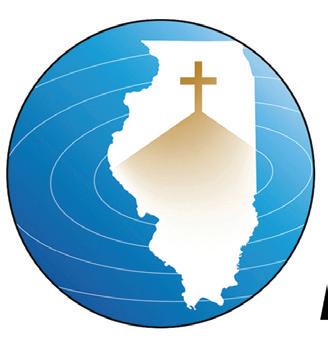
Beth is back, and this week we bought a new lawnmower. It’s one small way I can thank my wife for being a great partner. Our missionaries and staff couldn’t do what we do without the partnership of IBSA churches and the generous gifts of Illinois Baptists, especially through the Mission Illinois Offering. Thanks for being great partners.
Nate Adams is executive director of the Illinois Baptist State Association. Respond at IllinoisBaptist@IBSA.org.

A few days with my wife out of town made me appreciate the value of a good partner.
Continued
gospel to Jerusalem, Judea, Samaria, and the ends of the earth. Each prayer session, or season, will include a 10-minute presentation by a national or state prayer leader, 20 minutes of table discussion by participants, and a 30-minute prayer time.
The day of prayer features several Illinois leaders, including IBSA’s Prayer Ministries Coordinator Phil Miglioratti, who said the meeting has amplified meaning in the current culture.
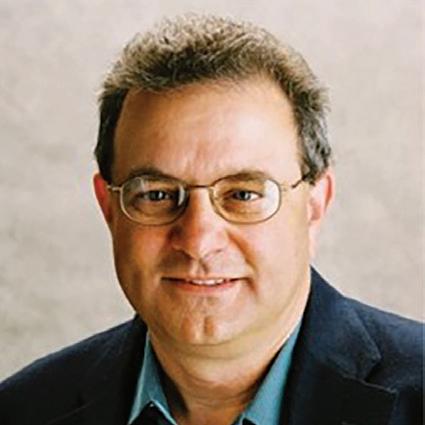
“Could it be the Lord’s message in the coming election is: “You, Church, have no one you can trust or turn to, except Me,” Miglioratti said.
“The Great Commission Prayer Experience is a timely event for Illinois Baptists ready for a serious pursuit of Christ through prayer,” he added. “A team of SBC national and state prayer leaders have designed a unique for-

disaster relief
mat that combines biblical teaching, real-talk group discussion, and focused, fervent prayer. Fulfilling the Great Commission is impossible without congregations led by trained prayer champions.”
Miglioratti will be joined by national prayer leaders Gary Frost, Elaine Helms, Claude King, and Chris Shofield, and church leaders from Illinois: Michael Allen, Kevin Carrothers, David Choi, Cheryl Dorsey, Cody and Katherine Lorance, and Jonathan Peters.
Along with the Friday meeting, on Saturday, PrayerLink will host a “prayer tour” in partnership with SEND Chicago, an initiative to plant new churches in the city and surrounding areas.
The Great Commission Prayer Experience is a free event with complimentary lunch for registered participants. To sign up and for more information, go to www.eventbrite. com/e/prayerlink-tickets-25803943289.
Illinois teams serve in La. flood zone
Louisiana | Three teams of Illinois Baptist Disaster Relief volunteers served in flood-ravaged southern Louisiana this month, and three more teams are set to go. More than 65,000 homes and 60 churches were damaged or destroyed.
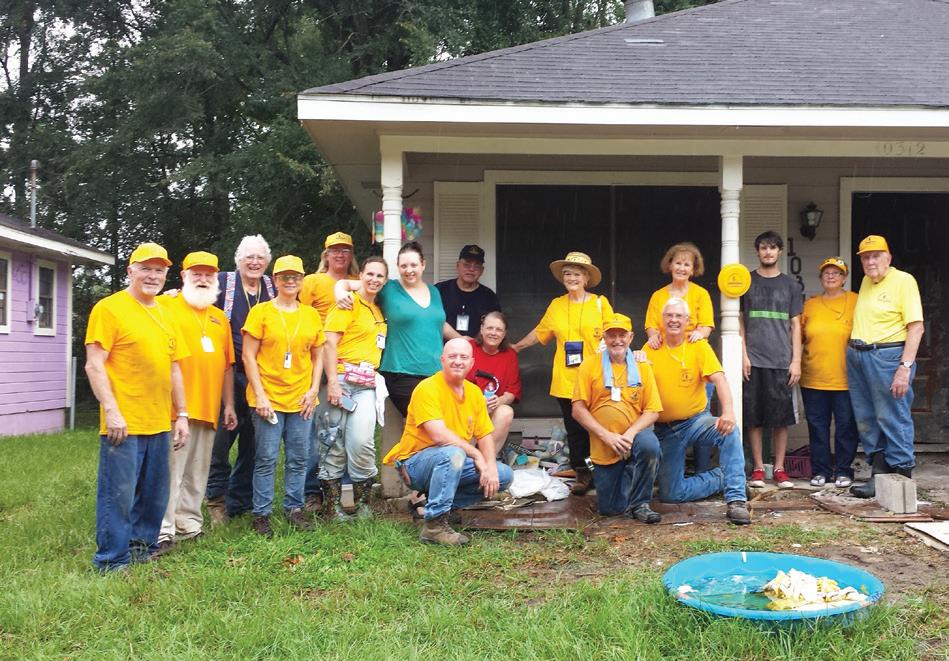
Jan Kragness, a chaplain serving with a team from Williamson Association, told via e-mail about the daughter of a family the team was serving. Kragness said when she gave the girl a salvation doll, “She fell apart in my arms.” Salvation dolls have a sad face on one side representing life without Christ and a happy face on the other representing life with him. The girl told Kragness the sad face “was exactly her.”
“I assured her that Jesus could be personal to her,” Kragness wrote. The girl did not accept Christ, but Kragness is praying she will soon.
A DR volunteer from Alabama died in Louisiana over the Labor Day weekend. Sonny Ellis lost his balance, fell out of the door of the team’s laundry unit and suffered severe brain injuries.
Earlier this year Don Fulkerson, a member of First Baptist Galatia, Ill. died of a heart attack while serving with a team from his church in Leesville, La., following spring floods.
IBSA has over 1,600 trained volunteers who serve as part of the Southern Baptist Convention’s Disaster Relief ministry. Illinois Disaster Relief is accepting gifts to help mobilize Illinois volunteers and equipment. To give, send a check payable to Illinois Disaster Relief to: IBSA, P.O. Box 19247, Springfield, IL 62703, or donate online at www.IBSA.org.
– Info from Baptist Press





Modern conservatives’ ‘founding mother’ dies
Phyllis Schlafly, best known for her tireless work to defeat the Equal Rights Amendment, has died at the age of 92. Schlafly said the ERA actually would erode women’s standing, leading to homosexual marriages, women in combat, governmentfunded abortions, and loss of alimony. After its defeat, she continued to champion conservative causes such as limited government, anti-abortion laws, and traditional education.
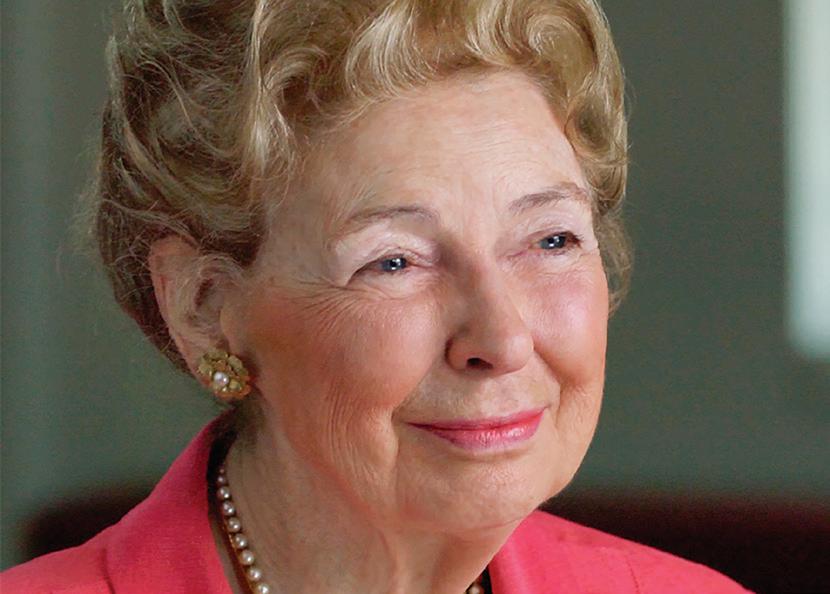
Schlafly got her start in Alton, Illinois, where after marrying lawyer Fred Schlafly in 1949, she became active in Republican Party politics and ran unsuccessfully for Congress twice. She would go on to found the Eagle Forum grass roots conservative group, write a newspaper column and newsletter, and author some 20 books. She coauthored a book supporting Donald Trump’s candidacy, which was released the day after she died.
Pastors sue over gay therapy ban
A group of Illinois pastors is suing the state over a law that bars therapists and counselors from trying to change a minor’s sexual orientation, saying the prohibition violates free speech and religious rights. The federal lawsuit seeks to exclude clergy from the ban that took effect Jan. 1, arguing that homosexuality is “contrary to God’s purpose” and a disorder that “can be resisted or overcome by those who seek to be faithful to God and His Word.”
“The law in Illinois is broader than the other laws, which were aimed at licensed counselors,” said attorney John Mauck, stating it shouldn’t apply to clergy.
– From Religion News Service, Associated Press Get breaking news in The Briefing online, posted every Tuesday at www.ib2news.org.
‘Witnessing machine’
Biker outreach yields results
Sturgis, S.D. | The annual Sturgis Bike Rally drew around 300,000 people to South Dakota this summer; 242 left having made a decision to follow Christ.
Brothers Josh and Jeff Mueller were among the volunteers who worked with the Dakota Baptist Convention to put on their annual bike giveaway and evangelism initiative. Before registering to win the prize, a 2016 Harley-Davidson Heritage Softtail Classic, rally attenders listened to the personal testimony of one of the volunteers.
Josh Mueller was one of these “sharers,” but during his first shift at the evangelism venue, he was too nervous to share his faith with anyone, much less a stranger. Like many Christians, Josh was nervous about personal evangelism. Unlike many Christians, Josh develops a stutter when he’s nervous.
That night he observed and prayed for the team.
The next night Josh was a different person, said his brother, a pastor in South Dakota.
“It was definitely divine circumstances and by God’s grace that he was able to share his testimony and faith in Jesus,” Jeff Mueller said.
On that shift, Jeff was in front of the venue working as a “catcher,” interacting with Sturgis attendees and inviting them to register for the motorcycle drawing at the end of the rally. The brothers had a signal. If Josh was too nervous to speak to the prospects Jeff brought in, he would nod.
As Jeff approached with the first two guests, there was no nod. Josh shared his story with two young men who had life stories similar to Josh, and they both made professions of faith in Christ.
“We were on cloud nine that whole night,” Jeff said. The rest of the week, Josh was a “witnessing machine.”
Josh and other volunteers made 3,085 gospel presentations that yielded 242 decisions at the Sturgis rally. Visitors came not just from across America but also from England, New Zealand, Australia, and Slovakia.
Garvon Golden, the Dakota convention’s executive director, said the success of the annual Sturgis Bike Giveaway has been their prayer emphasis. Each of the 128 volunteers received a guide called “Thirty Days of Prayer for Sturgis” to prepare spiritually to share their three-minute testimony.
The 2016 Sturgis Bike Giveaway—the 11th occasion for the evangelism outreach—entails a partnership between the Dakota Baptist Convention, North American Mission Board, Georgia Baptist Mission Board, and donations from individuals and businesses.

– From Baptist Press
Planters take urban challenge
New churches reach the unreached in Chicago
Chicago | Seventy-seven neighborhoods. That’s one way to measure the city of Chicago. Seventy-seven neighborhoods, each with its own set of distinct characteristics, selling points, and challenges.

“Every block is a different world,” said church planter Kenyatta Smith. “Every community is a different community, different races, different beliefs.”
Smith should know. He started Another Chance Baptist Church in Inglewood, one of the city’s most violent neighborhoods. Now, he and his church are looking toward another community, Evergreen Park, to start another new church.
“It’s two miles away from our main location, but it’s a world away,” Smith said.
He is one of dozens of church planters in Illinois who have undertaken an enormous challenge—starting a church from scratch, often in neighborhoods that have had few positive experiences with churches.
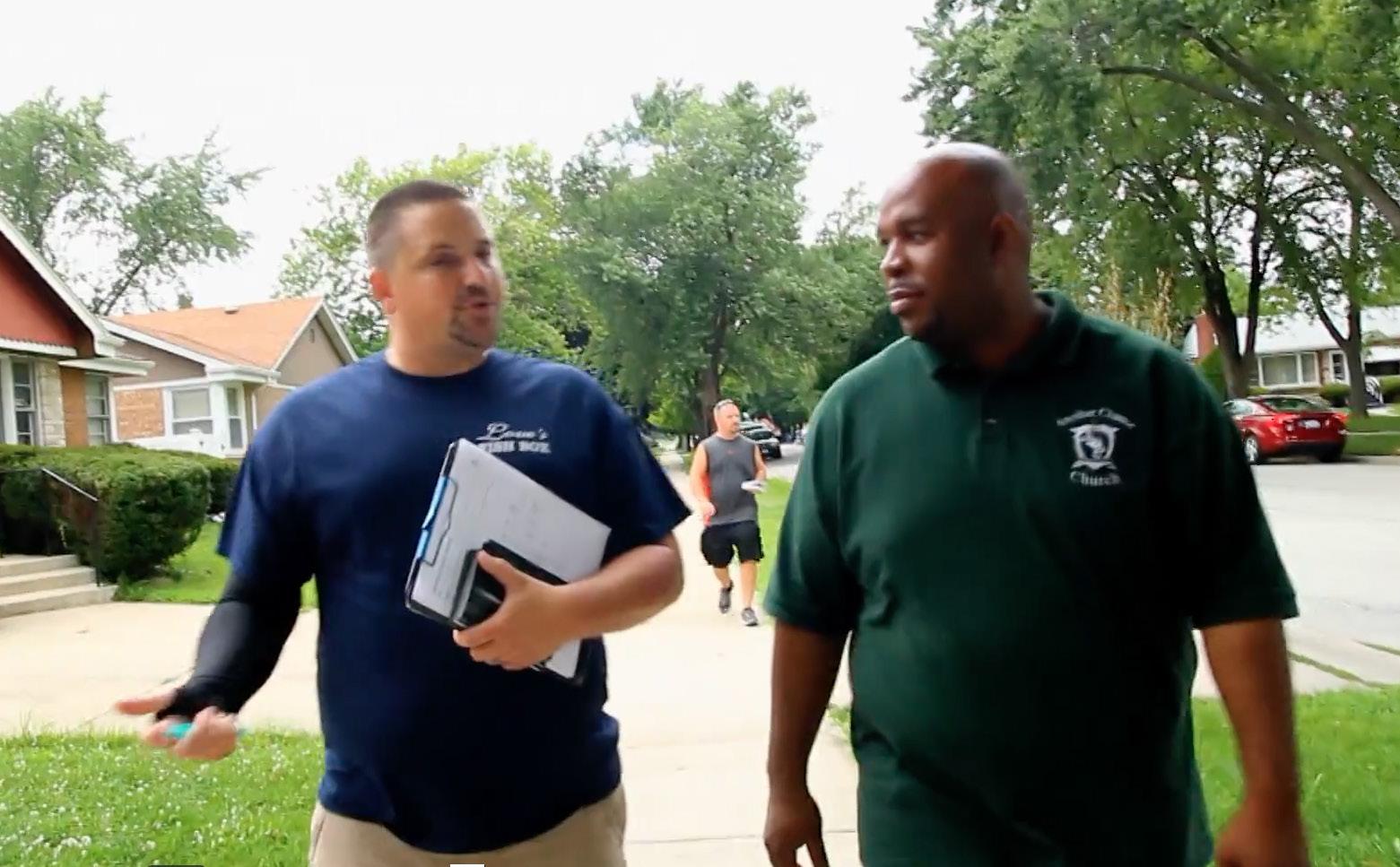
With the support of Illinois Baptists through the Mission Illinois Offering and short-term mission trips, as many as two dozen churches are started in Illinois every year, some in rural communities, some in college towns, and others in the urban centers. In Illinois, with 13 million residents, at least 8 milion people don’t know Jesus Christ…and church planters face great need.
Smith is personally familiar with that need. He launched Another Chance in 2012 to reach people who are in the same position as he once was.
“I was a gang banger, I used to sell drugs, and I believe God gave me another chance,” he said. “And because he gave me another chance, my mission, my job, is to help other people experience what God gave to me.”
Fulfilling that mission often means reaching across cultural boundaries, especially in a city like Chicago.
“The cities of Illinois are our greatest challenge,” said Van Kicklighter, IBSA’s associate executive director for church planting. It’s an incredible challenge, he said, to en-
gage millions upon millions of people, and their neighborhoods, people groups, languages and cultures.
“How do we tell the story of the gospel to people in languages and environments we don’t know anything about?
“But we know that the Father wants us to go there and to make a difference.”
Kenyatta Smith and other planters are leading the charge, answering a call not only to go to diverse places, but to see the diversity as a blessing.
“There is a whole new generation of young church planters that love the city,” Kicklighter said. Many of them grew up with the diversity they find there, and see it as a fulfillment of the Bible’s command to make disciples of all nations.
“The church ought to be for everyone, regardless of color, or race, or ethnic or racial background,” Kicklighter said. “So those guys that God’s inviting back to the city are helping us have new life and new opportunities to reach people that we’ve struggled with in the past reaching effectively.”

In Inglewood and now in Evergreen Park, for Smith, the call is to take light to a place in desperate need of another chance.
“We believe this community has just lost their hope, and we really want to bring that hope, that aspect of what God is, Jesus, back to our community.”
IN FOCUS
Bringing down walls
4 pastors discuss what it means to be ‘one in Christ’ today
BY MEREDITH FLYNNJesus issues a clear directive in Acts 1:8 to take the gospel to the ends of the earth. His command seems simple enough: Go and tell everyone about me. But when the ends of the earth move in next door, differences in language, religion, customs, and culture can quickly build walls between people who have the gospel and people who need to hear it.
The 2016 IBSA Annual Meeting will explore issues surrounding cross-cultural ministry, including real-life stories of pastors and churches who have sacrificed their own cultural comfort for the sake of the gospel.
The Illinois Baptist sat down with four such leaders for a special roundtable discussion about the cultural idols we all have, why the church seems to be last to change, and how to be a good neighbor. The following interview was edited for space.
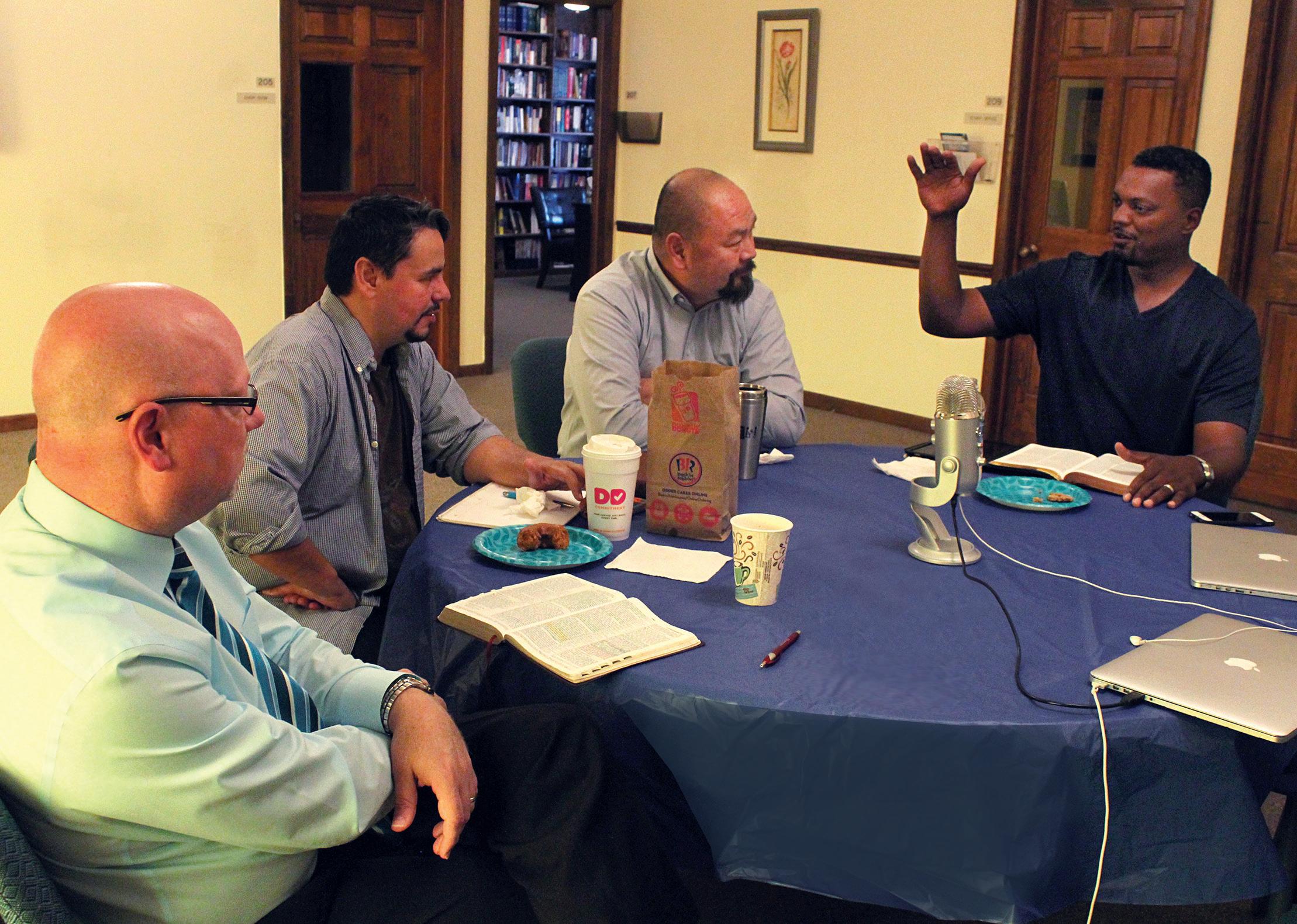
Kevin Carrothers, pastor of Rochester First Baptist Church and president of IBSA
Marvin Del Rios, pastor of Iglesia Bautista Erie in Chicago and a leader in the movement to reach second- and third-generation Hispanic peoples
John Yi, IBSA’s second-generation church planting catalyst in Chicago, founder of a community ministry in Maywood, and a leader at Bethel SBC, a church plant in Mt. Prospect
Adron Robinson, pastor of Hillcrest Baptist Church in Country Club Hills and vice president of IBSA
Continued on page 6
Illinois Baptist: Let’s start by defining the big topic. When we talk about ministering cross-culturally for the sake of the gospel, what does that mean to you?
Adron Robinson: In Ephesians 2, when Paul says that we are all one body of Christ, he is telling believers that we are all one new culture, and it is about tearing down our cultural idols in order to be that body of Christ.
We all have inherent cultural idols. We all come from culture and we all come with that assumption that the way we grew up is the way everybody should grow up. The gospel shows us that there is a new normal.
Marvin Del Rios: I go to the book of Acts, chapter 6, what we see between the Hellenistic Jews and the Hebrews. That is something we are living within the Hispanic and Latino churches right now. Unfortunately, the first generation can get stuck in a certain way of preaching, a certain way of leading worship, a certain way of doing church. What is happening is that there is an exodus of the second and third generations from the church. My thing with crosscultural ministry is that even though I am called to go and preach to the nations, I have a burning desire to go and reach my second- and third-generation Latino culture.
IB: Do you as pastors feel the pressure to lead in that way, to help your churches to move beyond those inherent cultural biases?
Kevin Carrothers: I will certainly agree that that is our responsibility. I was talking to Pastor Adron earlier about Jeremiah 29 and how God spoke through Jeremiah about the exile. The verse that sticks out in my mind is Jeremiah 29:7. It says, “Seek the welfare of the city I have deported you to; pray to the Lord on its behalf for when it has prosperity, you will prosper.”
Sometimes we feel like we are living in exile wherever we are. But we are called to wherever we are. God has planted us there, and we need to have transformational ministry in our communities. That does mean crossing all kinds of cultural divides.
Robinson: The other side of that, of God telling them to seek the welfare of the city, is them overcoming their nationalism.
Carrothers: That’s right.
Robinson: For them, Jerusalem was the pinnacle. God says, “Well, now you are in Babylon and you are to make Babylon a better place. You have been planted there sovereignly for a purpose.” Part of that is laying down our love for our old culture and doing what God has called us to do in a new context.
IB: We know that communities change over the years—your churches have experienced those shifting demographics in their neighborhoods. How does community change affect a church’s ability to reach across cultures?

Robinson: Hillcrest started as an Anglo church in an Anglo community. As the community transitioned to a more blended community, the church is always the last thing to change. The community was predominately African-American and the church was still predominately Anglo. They become known in the community as “that” church, not “our” church.
When they called me as pastor, the first thing we started to do is to try to reach our neighbors. Our
first priority was to get out and meet the community and build relationships so that we could have conversations about faith going forward. We connected with a high school across the street. We connected with City Hall. We started to look for ways to be incarnational. How can we take the gospel out to other places?
IB: You mentioned the church is always the last thing to change. Do you think that’s true of most churches?
Robinson: Yes, I think that’s most churches. I think we downplay how big of an idol comfort really is to us. As communities transition, churches can easily fall into the “us versus them” mentality. This is our church, we have always been here. Yeah, but the purpose of the church is to reach the community with the gospel. So if the neighborhood changes, you have new neighbors to reach.
known for. John 13:35 comes to mind. “By this all people will know that you are my disciples, if you have love for one another.”
Carrothers: Probably where our church has struggled the most is that we have to give away without expecting anything in return. We have done a fall festival for nine years, but it hasn’t brought a single member into the church. People have asked me why we keep doing this if we are not seeing people come into the church. My response is, if you can come up with something else where we can speak into 300-500 people’s lives in our community, then I’m all ears. Well, nobody has taken me up on that yet because we are speaking to 80 people on Sunday morning.
IB: Is expecting something in return one of those cultural idols we talked about?
Robinson: The corporate model, which is an idol from the world. One of the budget shifts Hillcrest made as far as reaching the community was to stop doing events for how much we can get back. We are doing whatever it is to extend the gospel to our community, which means that we are going to have to spend some money and sacrifice in order to reach our neighbors with the love of Christ. It’s not all going to come right back. You’re not going to have an event today and 50 new neighbors come in next week.
Yi: If you can get your congregation to think that way, that the church really is a non-profit organization, that we are not doing ministry for profit, that’s a success too. Just getting that shift in thinking.
Robinson: Getting the membership to embrace discipleship.
Carrothers: Absolutely. That’s a kingdom value.
Del Rios: We don’t change fast enough and then when we do decide to change, we are already five to ten years behind. Then we are doing the catchup game, and I think that’s where we as leaders get tired. We feel like we are in the hamster wheel running around doing nothing.
Yi: I think the big secret that we need to bring out into the open is that every church is “that” church, it’s just a matter of which “that” you are going to be. I still remember when you talked about a church, it was, “That’s the Catholic church, that’s the Baptist church, that’s a Methodist church.” But it’s not like that anymore. I think that churches can be more proactive about helping the community define what they are.
Working around church planters, one of the things we see is leaders being very proactive about what they want their church to be known as, what their niche is. Of course, in churches, we are not supposed to be public relations people, but I think we do have to be concerned, not just with what do the people outside the church think of us, but also what do our own members think of us. What kind of church are we? I think there is a lot we can do to help shape that. We do not have millions of dollars to create that public image, but we do have a currency and that’s the way we do our ministry. The way we engage our neighbors.
Robinson: I think John touched on something important: Every church is going to be that something. People are going to say that’s the church that does this or that church does that. You need to get out front in defining what your church is going to be
Del Rios: We established a Halloween outreach at the church three years ago. We open the doors and the kids come in with their families. We have a little table for kids’ activities, something very simple, and they get candy and they can leave. Then, as they are leaving, the parents are there and we have adults there to have simple conversations. Some lead to gospel conversations.
Now, how many have joined the church out of the last three or four years during that process? None. But this Saturday there was a block party in our neighborhood and I went to visit and just talk to a couple of folks I know. The people I talked to introduced me to other folks, and the other folks said, “You’re the church with the Halloween stuff going on. You’re the church that gave us hot chocolate and that Spanish coffee that was delicious.” Yes, we are the church. Are they coming in? They are not, but they associate us with the church on Halloween that had the great Spanish coffee and they came in and they listened to a gospel conversation. Not a Biblebanging conversation, but a gospel conversation.
Carrothers: Isn’t it interesting that one of the things Paul talks about in Romans 12 is hospitality?
Del Rios: Yes.
Carrothers: Isn’t the heart of hospitality giving away without expecting anything in return?
Robinson: In Acts 2, we see the church breaking bread together going house to house. It’s relationships when you read the Gospels. Jesus shares his life with 12 people. He teaches them by example
“I have had Anglo, AfricanAmerican, and other Hispanic pastors come preach at our church so we can have a grander vision of preaching the gospel outside of the four walls.”
what it looks like to have a relationship with God and they go out and spread the gospel with more people. They are living together, eating together, hanging out together all day long. Our churches are so “Sunday meeting, Wednesday meeting.” See you next Sunday, see you next Wednesday. We started to incorporate intentional hospitality to the life of the church.
IB: What other kinds of sacrifices have you had to make over the years to reach across cultures?
Yi: Part of Bethel SBC wanting to become a community church means we really have to become less Korean. In Korean churches, it is almost a universal practice to have a lunch fellowship after worship service and it is almost always Korean food. When I first proposed not doing Korean food anymore, there was an uproar. I’m like, “Why can’t we just do sandwiches or order pizza once in a while or do spaghetti and meatballs?” That’s how it was at the beginning, but now I can’t remember the last time we had a Korean meal at church. Our members have really taken to this idea that we have to make it more accessible. We want to get rid of all the barriers.
When you weigh the value of the gospel and the kingdom of God, I think sometimes those things that seemed so important to us start to lose their luster.
IB: What victories have you seen as you’ve navigated these issues?
Del Rios: We are a predominately or all Hispanic church in a community that has changed in the last seven to ten years; a lot of young professionals are moving in. They always saw us as a Hispanic church. But because we’ve asked the second-generation people we’re reaching to invest back into their first-generation parents and grandparents, we are now seeing where we can come out of our comfort zone in ministering to those young professionals.
We have tried to make our church a hub for the community. We are housing an AA meeting for families and a lot of contemporary culture kinds of programs. In a nutshell, they know that we are there to serve.
“We naturally think of other language groups and ethnic cultures or countries as cross-cultural. But I think cross-cultural ministry is also looking at somebody who is just like you, but maybe the difference is that they don’t know Jesus.”
IB: Are there questions you ask yourself about particular ministries or outreaches to keep from trying to do everything all the time?
Carrothers: I think it’s okay to say we are a small church. As a small church, we can’t do what a megachurch does. That doesn’t mean we can’t still have influence. We have to say, and I think John used the word niche earlier, what is the niche? What are going to be the definable core values of the church?
Yi: We cannot be all things to all the needs. One response to that is that we pray for more laborers, but I think God really has given us more laborers in the field than we are recognizing. In Mt. Prospect, there are folks that speak 10 different Eastern European languages near us, a whole bunch of folks from various parts of India, Central and South America, Asians; we can’t learn all those languages to speak to them, but we know there are people in our community that do know those languages and are believers, and there are churches that have some of those people groups in their congregations already.
That’s one of the reasons we try to partner with our neighboring churches, even if they are not all Southern Baptist. We have to appreciate that those are Gospel-preaching brothers too, and we are going to spend a lot of time with them in the kingdom of God, so we better start doing it.
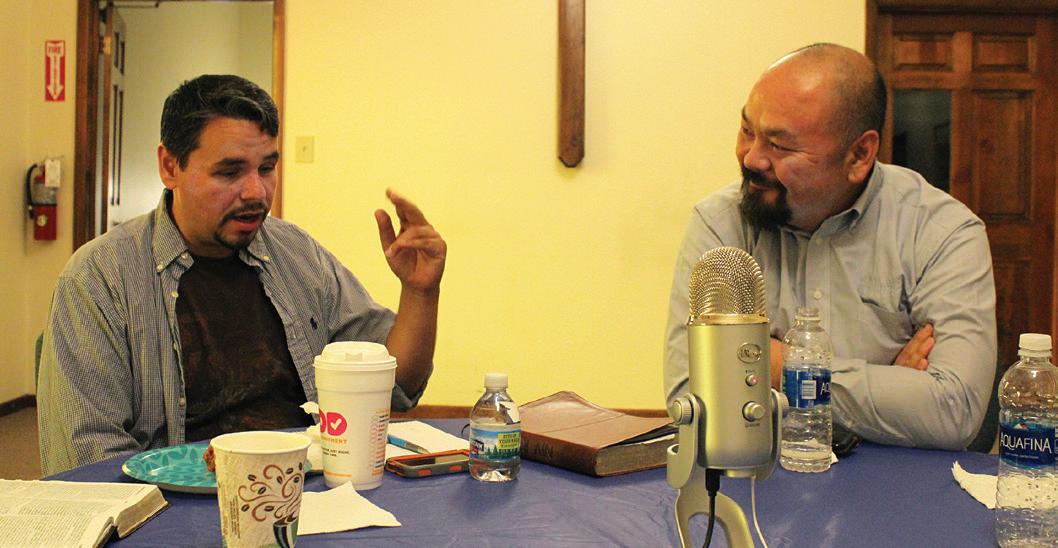
Del Rios: There’s the key word right there, kingdom. It’s God’s kingdom.
IB: Have you ever failed at a cross-cultural ministry attempt?
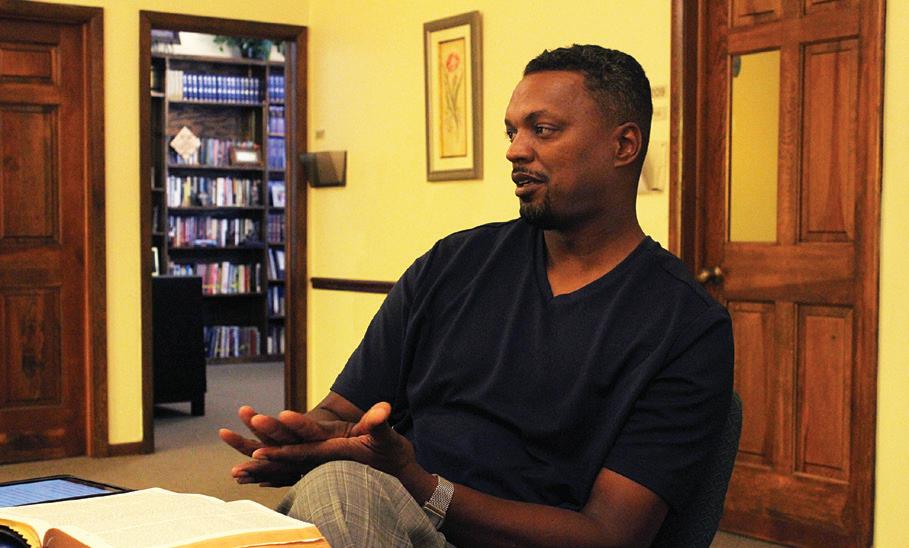
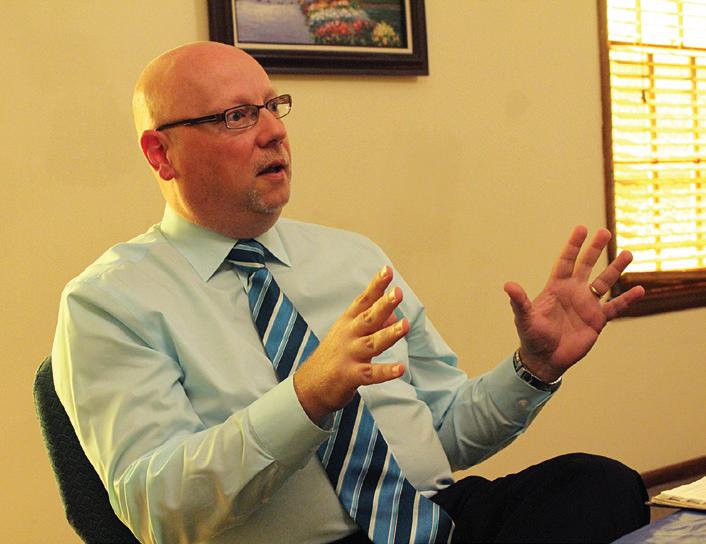
Yi: I can think of one particular failure that was really my preconceived notions about what would be okay or acceptable or most relevant for our community. We don’t see a lot of it in Illinois, but in the South there are a lot of churches that still have youth choirs. I remember the first youth choir that called us and wanted to come as a mission team to Maywood. I was really reluctant to even take them, because they really wanted to do a show in Maywood and they were from an affluent, white suburb. I’m thinking, “Well, okay, we need the help.” They ar-
“You have to get over yourself about being rejected at times. It’s not about you being rejected. It’s about them hearing and experiencing the gospel.”
rived and did a show at Navy Pier one night. I went out there to check them out and one of the elements of their show was a rap. I’m thinking, “Oh, no. I hope they don’t do the rap in Maywood because we have serious rappers in our town and if they try to do it, they might get laughed out of there.”
I had this preconceived notion that it was going to totally fail. But they did it in public in a park with 300 people in the community out there, and everybody was going crazy. They just loved it. The failure was my preconceived notion that I know what black people want or what my neighbors want and this is not it, but they thought it was the most awesome thing they ever saw.
Carrothers (laughing): If you invited me to rap, they would laugh me out of there.
IB: What from your ministry experience would you say to encourage pastors and churches who are seeking to cross cultures for the sake of the gospel?
Yi: Now I love having youth choirs come because of the variety of things they do to be creative and it’s just fun. I’ve never had a youth choir that was a fail.
Del Rios: Food is a big link in the Hispanic community. And it is more that they want to show you, especially the first generation. They want to show you their culture. They want to show you their homemade food. That means fast all day and go over there, and then they will start making a plate for you to take home. That’s one thing that has worked very well. I just go in there and let them show me everything, not just go in there and preach.
Robinson: Whatever culture you’re going to engage, it’s going to begin with relationships. Start a relationship with a pastor in a different culture. Talk to him about how to engage his culture. Also, it has to be done in love. You have to lead in love. Everybody wants love and needs love. Going back to John 13:35, when people see love, it will break down barriers.
There’s nothing that can’t be reconciled at the cross. You don’t have to agree on everything as long as we agree that the gospel comes first.
“Wherever we are, God has planted us there. We are where we are supposed to be, and we need to have transformational ministry in our communities. That does mean crossing all kinds of cultural divides.”Marvin Del Rios John Yi Adron Robinson
Fear Factor: 2016 Edition
“Driving the election is antipathy toward the competition: 80% of Trump supporters and 62% of Clinton supporters say if the other candidate wins in November, they would feel ‘scared,’ the most negative of four possible choices.”
– USA Today report on new poll of 1,000 likely voters (9/1/16)

“Many evangelical voters have grown to love the Donald’s roller coaster. Just as Trump divided and conquered the Republican Party, so also he has divided and conquered the religious right, the voting bloc…that has been a cornerstone of the Republican Party’s outreach for decades.”
– Trevin Wax of The Gospel Project on RNS (8/23/16)
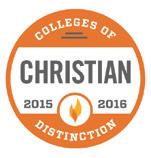
This election cycle is a “colossal, miserable, disgusting failure.”
– Keynote speaker David French, staff writer for the National Review, at the ERLC’s Onward Conference (8/26/16)
Nomore single issue elections
Since the big June meeting between Donald Trump and about 1,000 evangelical leaders, including a handful of Southern Baptist pastors, the political conversation involving conservative Christians has dropped off noticeably. Christians have grown quiet on politics. Even the Twitterverse is quiet right now.
One exception: an op/ed piece in USA Today by Hobby Lobby CEO David Green pointing to the pivotal nature of the U.S. Supreme Court. “Make no mistake, the vacancy left by Justice Scalia and the subsequent appointment to fill his seat makes this presidential election one of the most significant in modern times.”
Green’s company was at the center of a 2014 judgment that allowed his corporation to refuse to pay for abortion-inducing drugs as part of its health insurance plan because of religious objections, despite requirements under the Obama Affordable Health Care Act. The high court’s ruling in favor of Hobby Lobby was 5-4. “It’s frightening to me to think that we—and all Americans—were just one vote away from losing our religious freedom,” Green wrote.
That’s the reason he gives for supporting Donald Trump. “(Hillary) Clinton has made no secret she believes government interests supersede the protection of religious liberty.”
Green’s concern for religious liberty is understandable and even commendable, but his essay serves to show that evangelicals are no longer a one-issue people.
Beginning with the emergence of the Moral Majority, evangelicals became a force and a voting bloc. Their anti-abortion theology drove evangelicals to candidates who were expressly pro-life. Fortunately, those candidates were often in agreement with conservative Christians on many other issues as well, so supporting them advanced a whole bundle of issues. It worked for 30 years.

Not so today.
Green’s commentary underscores that evangelicals are not all in agreement on the importance of any one issue any more than they support any one candidate. The world is too complex for a single-issue approach. In this head-scratcher of election cycles, some evangelicals are valuing other issues as highly as pro-life and religious freedom: What about a candidate’s trustworthiness, honesty, temperament, and character? What is his or her history of relations with dangerous nations, prudence in peacetime or courage in war? What about the prospect of handling the nuclear codes?
Maybe many in the Christian community are relatively quiet on this presidential election because they’re still thinking about it. And scratching their heads.
He previously served as President of both Buckner International and Buckner Children and Family
Prior to his service at Buckner, he was president of Baptist
of the Américas in San Antonio. He has also served as pastor of three churches and been involved in numerous roles within the Baptist General Convention of Texas, including serving as convention president in 2005.
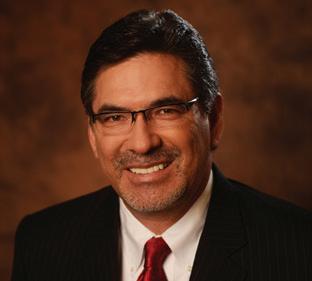
Three benefits of Baptist state conventions
Editor’s note: Doug Munton, first vice president of the Southern Baptist Convention and pastor of FBC O’Fallon, gives thought to the broader issues facing the SBC.
The Southern Baptist Convention is organized through state conventions (though some of the “state” conventions combine multiple states). I suggest to you that these state conventions play a helpful but underappreciated role in the work of our faith and denomination.
I’ve heard people predict or even advocate the demise of state conventions for years now. Are they necessary? Do they add a level of redundancy? That sort of thing.
While I always appreciate efforts to make our work more effective and efficient, there are some benefits to the work of our state conventions that ought to be considered. Here are just a few:
1. They keep us locally focused.
I appreciate a big-picture approach to SBC life. But that big picture is made up of many smaller portraits. No one knows more about the needs of my state better than my own state convention staff. The very fact that they live and worship here allows them to understand our needs in church planting and revitalization and discipleship in a way that is difficult for others.
Their local focus forces them to understand our churches because local churches are the ones supporting them. They are accountable to their local churches in a way that national entities, by their very nature, can’t be.
But a local focus does not negate a national and international strategy. I’ve found most state convention leaders to be Kingdom-focused and team players within our denomination. They care deeply about our denomination as a whole and not just their part. And do note that our state conventions have been on a slow but steady increase in the percentage of Cooperative Program receipts they send on to the national entities.
2. They connect us. State conventions have been helpful in connecting me with other pastors and church leaders. Whether through training events or special activities or just personal contact, they can help churches and ministers connect. A state convention staffer just connected me with a church planter in my state. I will benefit from learning from this church planter and perhaps he will benefit from me.
They also connect us with our national entities. Pastors often don’t know the leaders of the SBC’s entities. We know about them but may not know them personally. Our sheer numbers prohibit that. But pastors can easily know their state convention staff. And they will certainly get a return phone call. Ministers can discover how to connect with the North American Mission Board and the International Mission Board and our seminaries and other entities through the assistance of their state convention.
Our state convention just partnered with LifeWay Christian Resources for a special event for pastors and wives. It brought new connections between ministers and also to this large national entity. Win/win.
3. They support us. If I need training in my church, I know that I can find out how to get it through my state convention. They will either provide it or show me the resources by which I can find it. My state convention will sponsor training in discipleship, evangelism, church planting, church revitalization, small groups…well, you get the picture. If I need help, they will help me be helped.
In my state convention of Illinois, our church has been helped with everything from estate planning to Vacation Bible School. They have helped us organize our people for Disaster Relief teams and counseled our staff on retirement planning. And I cannot tell you how many times they have provided personal encouragement to me—often exactly what I needed, exactly when I needed it. State conventions also do some of their best work more individually. They do it by supporting a struggling pastor who needs some encouragement or advice. They help a transitioning church to see new possibilities. They help pastorless churches find leadership. No, our state conventions aren’t perfect any more than are our national entities. Perhaps there are ways to increase efficiency. Maybe you can help them become more effective. But don’t lose sight of their benefit and the blessing they have been and can continue to be.
– From Baptist PressPat’s Playbook
Break from the status quo
QOur church fellowship is sweet. Worship is good. The pastor preaches well. But we’re not getting anything done. We grow just enough to make up for our losses. Everyone seems content, except me. Do you know what I mean?
AYour question gives me the impression that the church is focused inwardly—sweet fellowship, good worship, sound preaching, and little growth. Someone once asked, “If this church closed its doors next week, would anyone even notice?” Perhaps it’s time to ask that question.
devotional
PAT PAJAKNo matter how comfortable a church is on the inside, no one on the outside will ever know about it until you get them on the inside. Look for mission projects that move the membership into the community and give you an opportunity to share the gospel. Consider VBS or a block party, police appreciation day, car show, fishing derby, free concert, business luncheon, etc.
Next Sunday, have every member face the outer walls, stretch out their hands, and pray for God to move the church from the pews inside to the people outside!
Keep it confidential
QOur treasurer knows how much everybody gives. Now he’s pushing the elders to confront a member who doesn’t tithe. (The church encourages generous giving, but does not require tithing in its bylaws.) I think the treasurer is out of line. What do you think?
AI personally don’t think the treasurer needs to be aware of the membership’s giving. His or her responsibility should be to account for deposits, keep receipts of expenditures, write the necessary checks, and prepare financial reports.
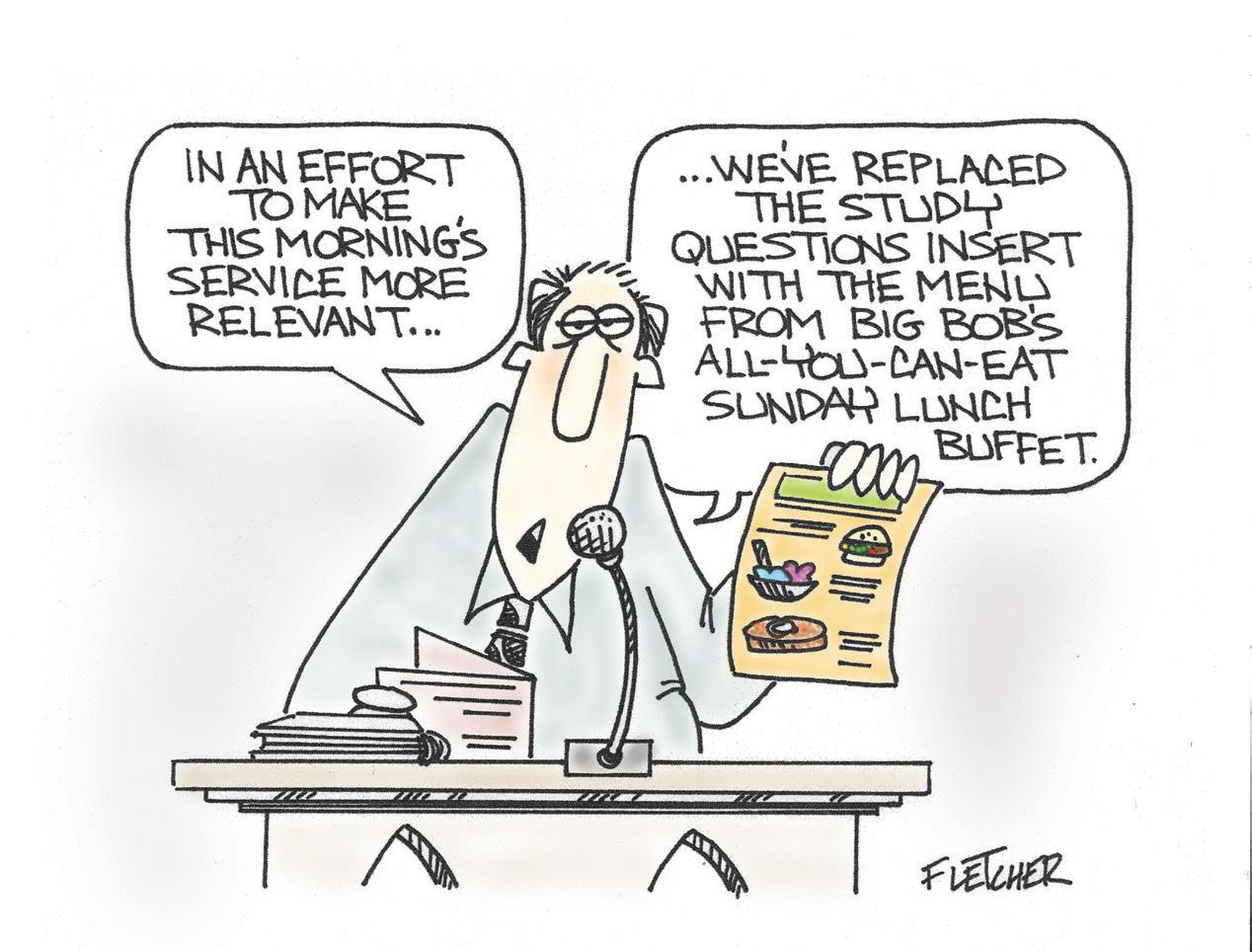
A separate tellers committee should total the weekly offering and one of its members should post the giving record from the offering envelopes or check register. That system keeps everyone from knowing everything about everyone’s giving. It’s the Holy Spirit’s convicting power that will cause a person to give generously, not a confrontation by the elders.
Pat Pajak leads IBSA’s Church Consulting Team. He has led churches of all sizes across Illinois. Send your questions for Pat to Illinois Baptist@IBSA.org.
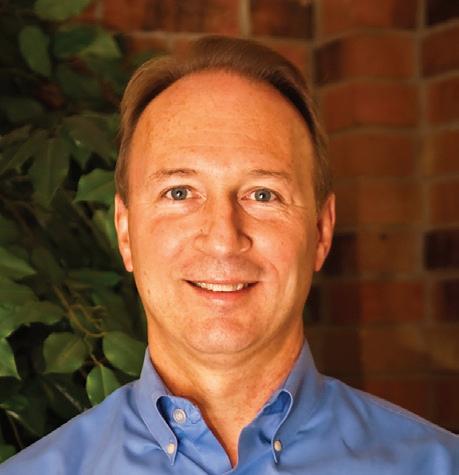
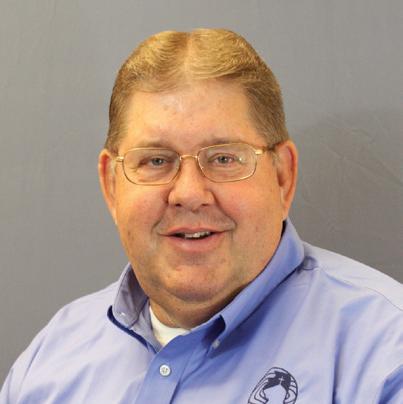
The big picture of SBC life is made up of many smaller portraits.
Dorrisville team tops tourney people

Welcome
Kelly Carruthers
began serving as pastor of Louisville Baptist Church in May. Before spending 14 years in Botswana as missionaries with the International Mission Board, Kelly and his wife, Ann, and their children lived in Louisville, where he pastored Hoosier Prairie Baptist Church. Kelly and Ann have a daughter, Kayla, son-in-law, Michael, and two sons, Namon and Noah.
Daniel Johnson is the new pastor of First Missionary Baptist Church in Flat Rock. Johnson, who previously led Charity Baptist Church in Carlinville, began his new role in August. He and his wife, Julie, have a daughter, Brittany.
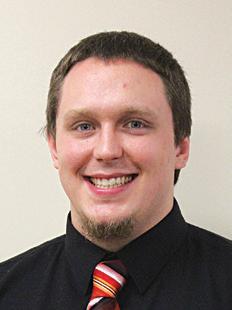
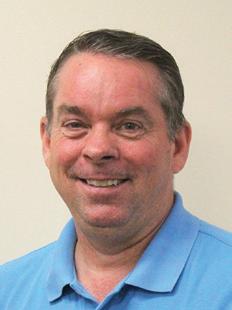
Sean Lasley is associate pastor of students and families at Jonesboro First Baptist Church. A native of southern Illinois, Lasley previously served as youth minister at Mill Creek Baptist and as pastor at Dutch Ridge Missionary Baptist in Carbondale. He and his wife, Jessica, have a son, Anderson, and are expecting their second child.
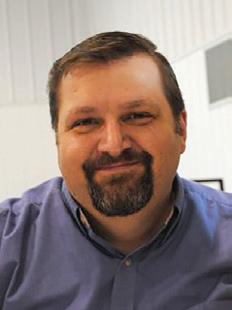
In Memory
Thelma Ellis, wife of Rev. Gene Ellis, died July 26 in Casey at the age of 83. She served alongside her husband for more than 50 years as he pastored churches in Illinois. Thelma also was president of Illinois Baptist Pastors’ Wives in the late 1980s. She is survived by her husband; one son, Mike; one granddaughter; and two great-grandchildren.

NeTworkiNg
Find more information on ministry positions at IBSA.org/connect
Send NetworkiNg items to IllinoisBaptist@IBSA.org
Teens fueled for outreach
Jonesboro | When new student pastor Sean Lasley arrived at First Baptist Church of Jonesboro this summer, most of the camp opportunities for his students had already passed or were full. So Lasley planned a threeday camp at the church, including guest speakers, small group time, and hands-on mission projects.
One outreach took the teens to a gas station, where they pumped gas, gave out $5 gas cards and coupons for fountain drinks and coffee, and offered to pray for people. Lasley told a reporter from the local newspaper that the ministry was their way of caring for the community.
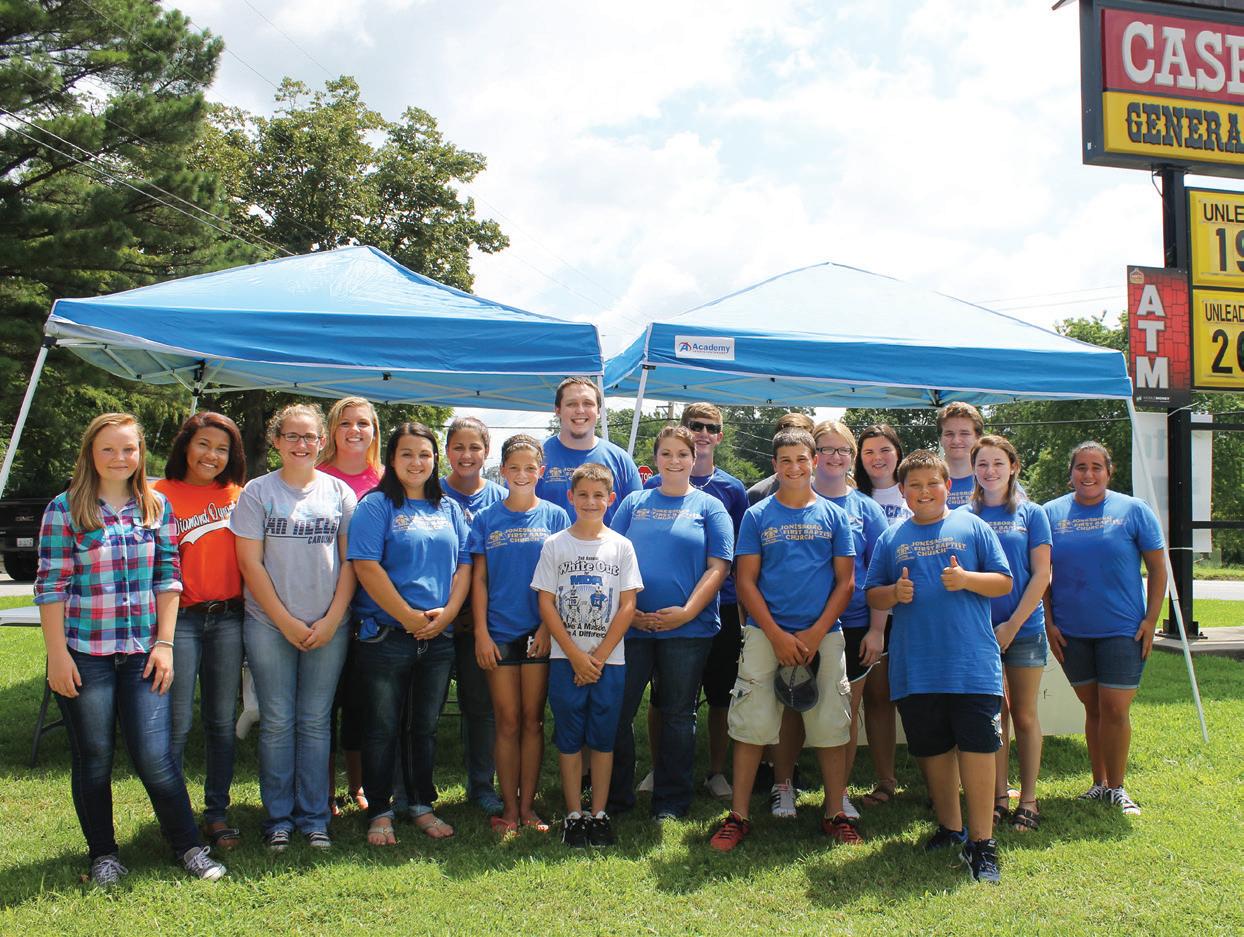
Affiliating with IBSA
Churches that wish to apply for affiliation with the Illinois Baptist State Association must submit an application for membership by September 19. To request a packet that explains the application process, contact Sandy Barnard at (217) 391-3107 or e-mail SandyBarnard@IBSA.org.
Churches applying for affiliation:
Another Chance
Chicago
Bethlehem Star
Chicago
Eternal Life Christian Church
South Barrington
Greater Morning View
Chicago
Metropolitan Gary, Ind.
Perfecting Faith Ministry
Swansea
Revelation Road
Buncombe
The Journey, Metro East
Belleville
The Journey, Southern Illinois
Marion
Truth Foundation Ministries
Romeoville
The IBSA Annual Meeting is November 2-3 at Broadview Missionary Baptist Church. The churches affiliating with IBSA will be presented at the beginning of the Wednesday evening session.

Charity Baptist Church, located about six miles outside Carlinville, seeks a pastor, either full-time or bivocational, who agrees with The Baptist Faith & Message (2000) Parsonage is available. Send resumés to Search Committee, 21694 Charity Church Road, Carlinville, IL 62626. Contact Bill Harding at (217) 854-6071.
Logan Street Baptist Church, Mt. Vernon, is seeking a full-time senior pastor. Please submit resumes to lsbcsearch@gmail.com, or Logan Street Baptist Church, Attn: Pastor Search Committee, 601 S. 21st St., Mt. Vernon, IL 62864.
Pastors are invited to a January Bible Study preparation retreat at Lake Sallateeska Baptist Camp Oct. 10-11. This year’s study, with materials created by LifeWay Christian Resources, is on the book of Malachi. Russell Fuller, professor of Old Testament Interpretation at Southern Seminary, will lead the retreat. For more information, call (217) 638-2110.
EVENTS
September 17
Living Proof Simulcast
What: Teaching by Beth Moore
Where: IBSA Building, Springfield
Cost: $10 if affiliated with an IBSA church, $15 all others
Register: IBSA.org/women
September 23-24
Illinois Changers
What: Missions projects for students
Where: Sallateeska and Streator Camps
Cost: $25 per person
Register: IBSA.org/students
October 1
Children’s Missions Celebration

See ad on this page
October 9
Youth Encounter
What: Student evangelism event
Where: Hillcrest, Chicagoland; Tabernacle, Decatur; Marion Civic Center
Cost: $25 per person, includes dinner
Registration (and full list of worship leaders): IBSA.org/students
October 15
Hispanic Women’s Conference
What: Worship and teaching, featuring Chicago journalist Milenka Pena
Where: Broadview Missionary Baptist
Cost: $30, includes lunch
Info: anademelendez@gmail.com
October 14-15
Disaster Relief Training
What: Classes in food prep, mudout, childcare, chaplaincy, search & rescue, and more
Where: Lake Sallateeska Baptist Camp
Cost: $30 new trainees, $10 renewals
Register: IBSA.org/dr
October 22
Kids’ Ministry Resource Conference
What: Training for kids’ ministry leaders in Sunday school, mission groups, and Vacation Bible School, including the 2017 VBS preview
Where: IBSA Building, Springfield
Cost: $10 per person, includes materials and lunch
Register: IBSA.org/kids
dave says
Tiny house, big risk A
QWhat is your opinion on paying cash for a “tiny house”?
This may be a really un-hip or un-cool thing to say, but I wouldn’t buy a tiny house at all. Paying cash for something like that might make the mover smarter, but that still doesn’t mean it’s a smart choice.
Now, don’t take what I’m saying the wrong way. I don’t have a problem with people who build tiny houses or buy them. My problem with these things is that there’s no track record on them. There’s also a pretty good chance they’re going to be just a fad. Another problem is that you’d have a really small market when it comes time to sell your tiny house. In other words, they probably won’t go up in value like a traditional home. They may actually lose value over the years.
There’s a thing in economics called the supply-demand curve, and from what I’ve seen, tiny houses also have a tiny demand and pretty narrow market appeal. Their appeal seems to be mostly for early adopters and people who think they’ll never be able to afford a house. That means they’re not going to have broad appeal when you get ready to sell them, either. And that creates a problem.
I could be wrong, though. I mean, if enough people buy tiny houses and they become a real part of our culture, then maybe they’ll do okay. But right now it’s an unproven product line and an unproven concept. So I wouldn’t buy a tiny house. Honestly, I wouldn’t even buy one at half of its current value because I’d be afraid it would drop to a fourth of its value. There’s just no proven record at this point of these things going up in value.
Financial advisor Dave Ramsey is a prolific author and radio host.
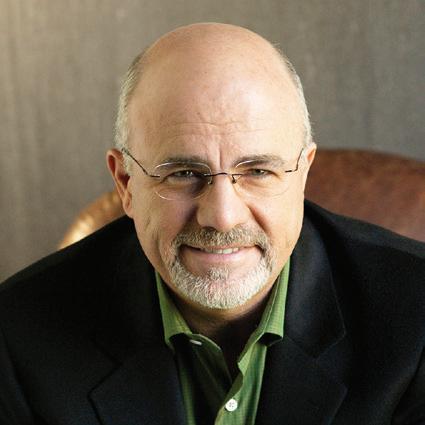 DAVE RAMSEY
DAVE RAMSEY
Family loan woes
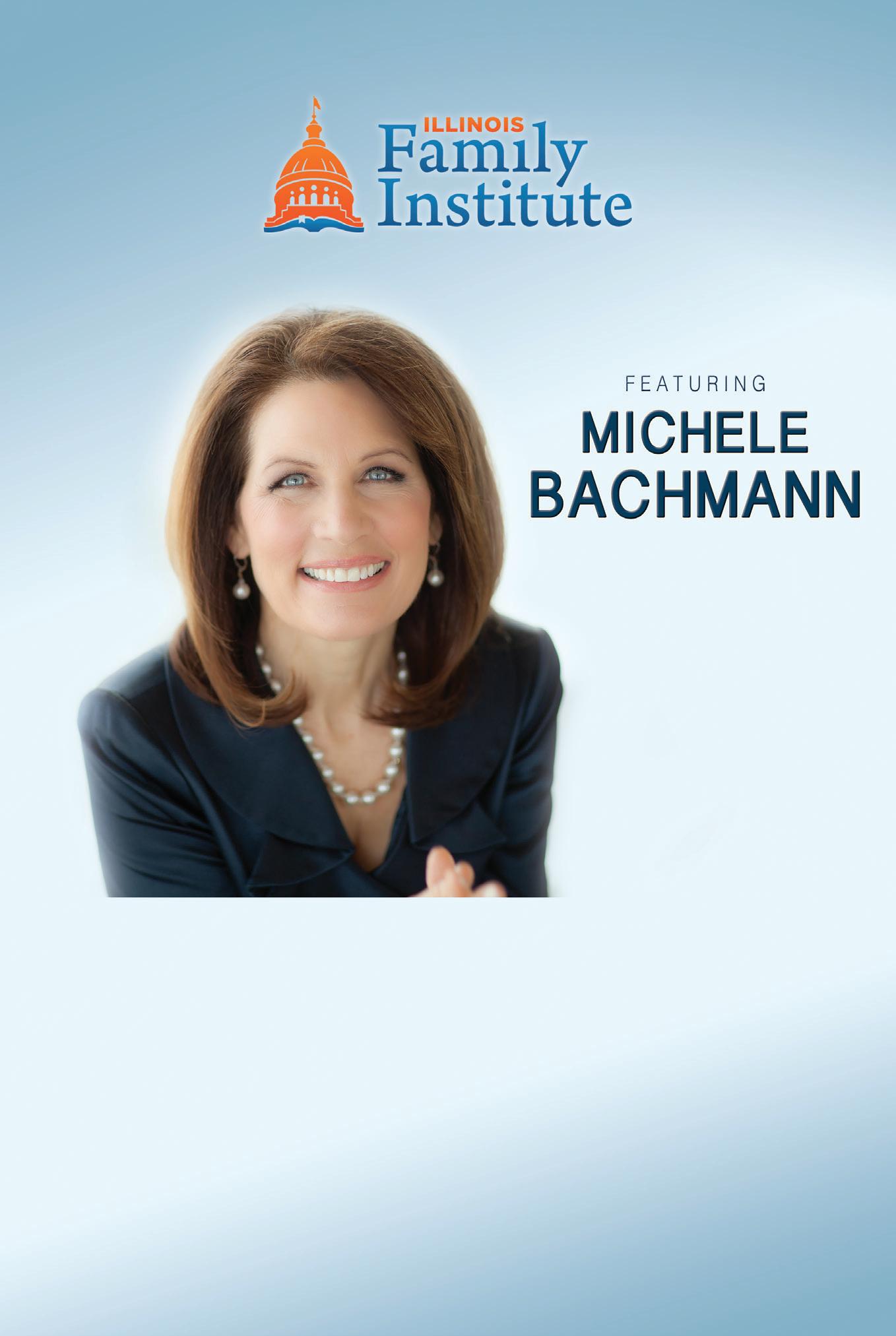
QMy father loaned my husband and I money 20 years ago to help us start a business. The business eventually failed, and it forced us into bankruptcy. After this, we never seemed to get around to paying him back. He died earlier this year, and when we got together with my brother and sister for the reading of the will, we realized he had deducted the amount of the loan from my inheritance. Everything was equal between us before that. I think that’s wrong. What’s your opinion?
AI’m really sorry about your dad. I’m also sorry this was never taken care of or discussed while he was still alive. There are a lot of emotions at play, so I don’t want to beat you up too much. But legally, he didn’t have to leave you anything in his estate. The stuff we’re talking about, money included, was his to do with as he saw fit. It was a little odd that he didn’t address this with you beforehand, but there are lots of instances where kids get nothing from an estate or not as much as others. It’s not uncommon.
In my mind, and, from the sound of it, his too, he left you an equal share minus what you still owed. He loaned you the money, and he had the right to set terms on that. I understand your frustration. You feel like he took something away that was yours. My point is it was never yours; it was his.
I know it still hurts though. This is one of the reasons I advise never borrowing money from, or loaning it to, relatives. The best of intentions can end up in places like this.
Oct. 1
• Hillcrest Baptist Church, Chicago
• IBSA Building, Springfield 9:30 a.m. - 3 p.m.
For kids in grades 1-6
Cost: $15 per person (IBSA-affiliated) ibsa.org kids Register at
as people who are free, not using your freedom as a cover-up for evil, but living as servants of God.”
i lead
Know your neighborhood
The only constant in this world is change, it’s been said. And it’s true. As steady as we try to hold the plow, the landscape of our world is continually shifting, even if we wish it weren’t.
As people committed to reaching people with the Good News of Jesus, how can we make sense of this? How can we understand our communities so the seeds of the gospel can take root? Here are four simple steps that can help our churches to this end:
1. Know the facts. Use demographic data to determine how many people there are in a particular area, along with a breakdown of age groups, average income, and standard of living. While these numbers can be interesting and helpful in themselves, we also want to look at how they are changing over time. Demographic shifts will have an impact on the ministries the church should offer, in light of what the community is becoming.
VAN KICKLIGHTERChurch needed here...
Location: South Loop, Chicago
Focus: Unchurched singles and families

Characteristics: This multiethnic community of upper and upper-middle class residents is one of the few in Chicago experiencing rapid population growth.
Prayer needs: Pray God will raise up a church planter with the skills needed to penetrate this community with the gospel, with the goal of planting a church.
Stop the whirl, I want to get off
Many churches fall into the cycle of “carousel Christianity,” where everyone is going up and down and moving around, but no one is really going anywhere. Discipleship is not merely knowledge transfer, nor is it only behavior modification.

God’s family
The Spirit himself testifies together with our spirit that we are God’s children, and if children, also heirs—heirs of God and coheirs with Christ—seeing that we suffer with him so that we may also be glorified with Him.
(Romans 8:16-17)
2. Know the people. This task is best accomplished by going out onto the streets of your community. Look at the people around you. Does the view match up with what the demographic study describes? Go out on different days and at various times. Look with the eyes of God at those who live and work in the community.
3. Know the community. Explore what organizations are already thriving and making a difference. What are they doing that is working and how can your church emulate those characteristics? What stores, businesses, and hangout spots do people frequent most, and why?
4. Know what really matters. In other words, what do the people of your community really care about? What are they passionate about? Some would call these community values, such as leisure, education, justice, moral causes, or social issues. Church leaders may not agree with all of them, but knowing what people in a community truly care about gives the church a starting point for sharing biblical truth.
Some of these steps are easy and straightforward, others take more effort and time. I encourage you to pray and ask God to grant that insight and give better understanding of the people who live nearby.
Van Kicklighter is IBSA’s associate executive director for the Church Planting Team. Read the full version of this column in the current issue of Resource magazine, online at resource.IBSA.org.
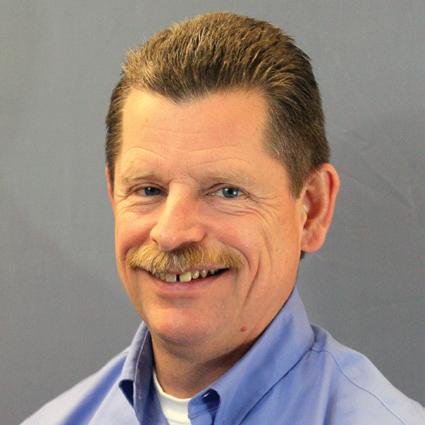
A good discipleship strategy will include a way to measure progress and will provide opportunities in the four primary areas people seek and need discipleship: life issues (marriage, work, parenting, suffering, etc.)
text study (Luke, Job, Daniel, etc.) theology (the doctrine of the Holy Spirit, man, sin, etc.), the role and purpose of the church, locally and globally, “the idea being that everyone should get to the same place in their discipleship, but not everyone gets there exactly the same way,” Philip Nation said at the Illinois Leadership Summit.
For your next team meeting, discuss your church’s strategy for moving people through a discipleship process. Personal spiritual growth doesn’t happen by accident.
LifeWay’s Philip Nation offers 11 ways to create a disciple-making culture in your church in the Fall issue of IBSA’s Resource magazine. Send for a free subscription at Communications@IBSA.org.
illinois religious landscape

Peaceful, easy feeling
55% 27% 19% 1%
of adults in Illinois say they have a sense of spiritual peace and wellbeing at least once per week say once/twice a month or several times a year say never don’t know
– Pew Research
Certainly the salvation of our souls from sin is a tremendous blessing, however, there is so much more. As I recently talked with a new believer, I shared how our salvation in Christ makes us a child of God, a part of his family. Through the truth of God’s Word, the Holy Spirit gives us assurance of this.
So what do families do? They love, care, celebrate, cry, discipline, and train one another. The Spirit himself gives us new desires and appetites for the Scripture, for it is the nourishment of spiritual life. Being part of the family of God means that we are able to experience and do all of this through the power of the Holy Spirit’s presence in our lives.
KEVIN CARROTHERSFurthermore, we are privileged to experience the blessings of God, to enjoy his presence now, and to anticipate with joy his future eternal reign. While we wait for his return, there will be times of affliction and persecution for his name’s sake. In the Father’s providence, we have the Spirit to help us persevere and a spiritual family to encourage us along the way.
PRAYER PROMPT: Thank you, Lord, for adopting us into your family.
Kevin Carrothers serves as pastor of Rochester FBC and president of IBSA.
Pastors, join the IBSA Pastors’ Prayer Room on Facebook. E-mail oweaver7307@ gmail.com.
